
1
Story Information
2
Share
Share Link
Spread the word on your favorite platforms.
Story Statistics
2,345 Reads
80 Shares
320 Likes
Related Stories
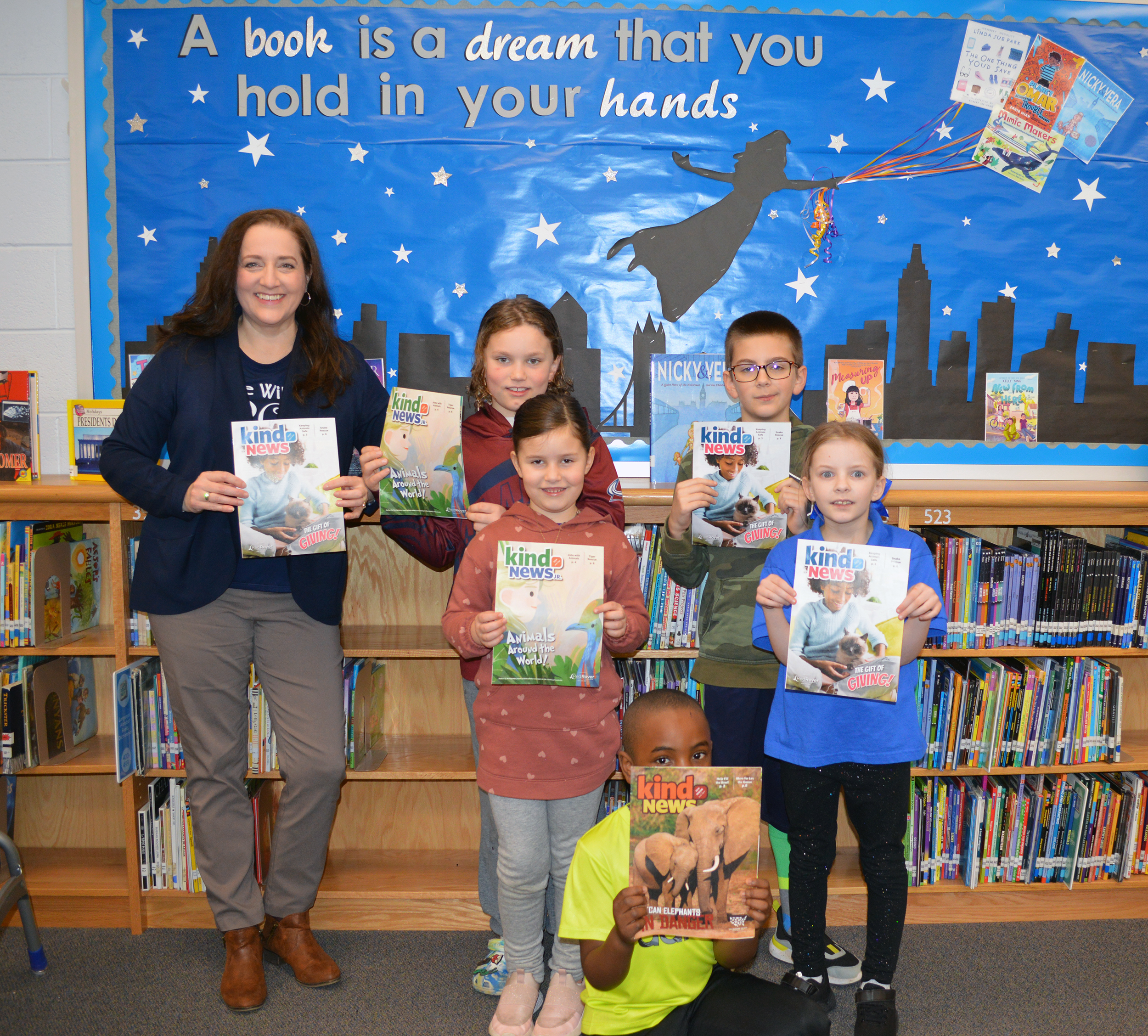
1 year ago
Spreading compassion far and wide: Meet our Kind News sponsors!
By Amelia Saris, Kind News™ Manager
Every year, we bring Kind News magazine to over 270,000 children around the country. That means that every year, we get to see kids’ sweet notes of thanks and beautiful animal-themed artwork But we don’t do it alone! Our many generous sponsors are crucial to making this happen.
Melissa Korzuch, President of Prince William SPCA, poseswith some children in her community who receive Kind News
Since 1985, hundreds of organizations have used Kind News to strengthen humane education in their communities. We are thrilled to introduce you to some of our 2024 sponsors, both old and new! Read on to hear their “whys,” what drew them to Kind News, and what keeps them coming back to support this important effort year after year.
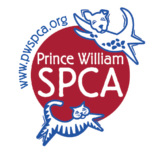 Prince William SPCA – Manassas, Virginia
Prince William SPCA – Manassas, Virginia
“We have sponsored Kind News for 17 years! Our teachers love it and so do the students.There is no better, more cost-effective way to get humane education into so many schools than with Kind News,” says Melissa Korzuch, Prince William SPCA’s President. “We also hand it out at special events. I can’t tell you how many times a child walks up and says he or she gets Kind News in the classroom. It means we are reaching our target audience and making a difference.”
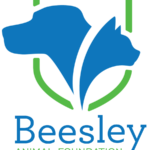 Beesley Animal Foundation – Murfreesboro, Tennessee
Beesley Animal Foundation – Murfreesboro, Tennessee
“For almost two decades, we have brought Kind News to classrooms throughout Middle Tennessee, nurturing a love for reading and kindness in every issue. We take pride in helping spread ‘kindness, respect, and responsibility’ to children and their families,” the Foundation says.
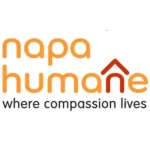 Carroll County Humane Society – Carrollton, Georgia
Carroll County Humane Society – Carrollton, Georgia
Napa Humane Society – Napa, California
“We love providing the teachers and students of our community with these informative and interesting magazines. We hear often that both the students and teachers look forward to receiving the content!” says Alyssa Vincent, Napa Humane’s Pet Education Program Manager.
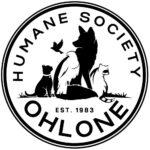 Ohlone Humane Society – Fremont, California
Ohlone Humane Society – Fremont, California
“Over the more than 20 years Ohlone Humane Society has proudly sponsored Kind News classroom subscriptions, we’ve found it a great way to connect with our schools and teachers and to open doors for humane education,” says L. O’Connor, Volunteer, OHS Humane Education/Youth and Family Program Manager.
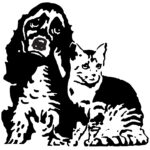 St. Maarten Animal Welfare Foundation – Philipsburg, Sint Maarten
St. Maarten Animal Welfare Foundation – Philipsburg, Sint Maarten
Says Kathy Deher, President, “The St. Maarten Animal Welfare Foundation has been bringing Kind News to St. Maarten for over 30 years! We are happy and proud to be sharing the Kind News with so many children.”
Voice for Animals – Harrison, Maine
“Schools tell us they are so happy to receive this magazine,” relays Caryl Edwards, VFA’s President.“One secretary tells me she always takes a copy for her grandson who lives outside of the area. It is our goal to keep adding classrooms yearly!”
And a very warm welcome to our new brand new sponsors…
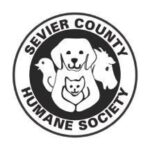 Sevier County Humane Society – Sevierville, Tennessee
Sevier County Humane Society – Sevierville, Tennessee
Sevier County Humane is starting off by bringing Kind News to all of the third grade classrooms in their school district, and hope to expand into all of East Tennessee! Cheri Hagmeier, President, says “We know the importance of early education, and SCHS sees Kind News as an effective tool to help us in our mission of inspiring a new generation to compassion and respect for all animals, to improve their lives and to stop animal suffering.”
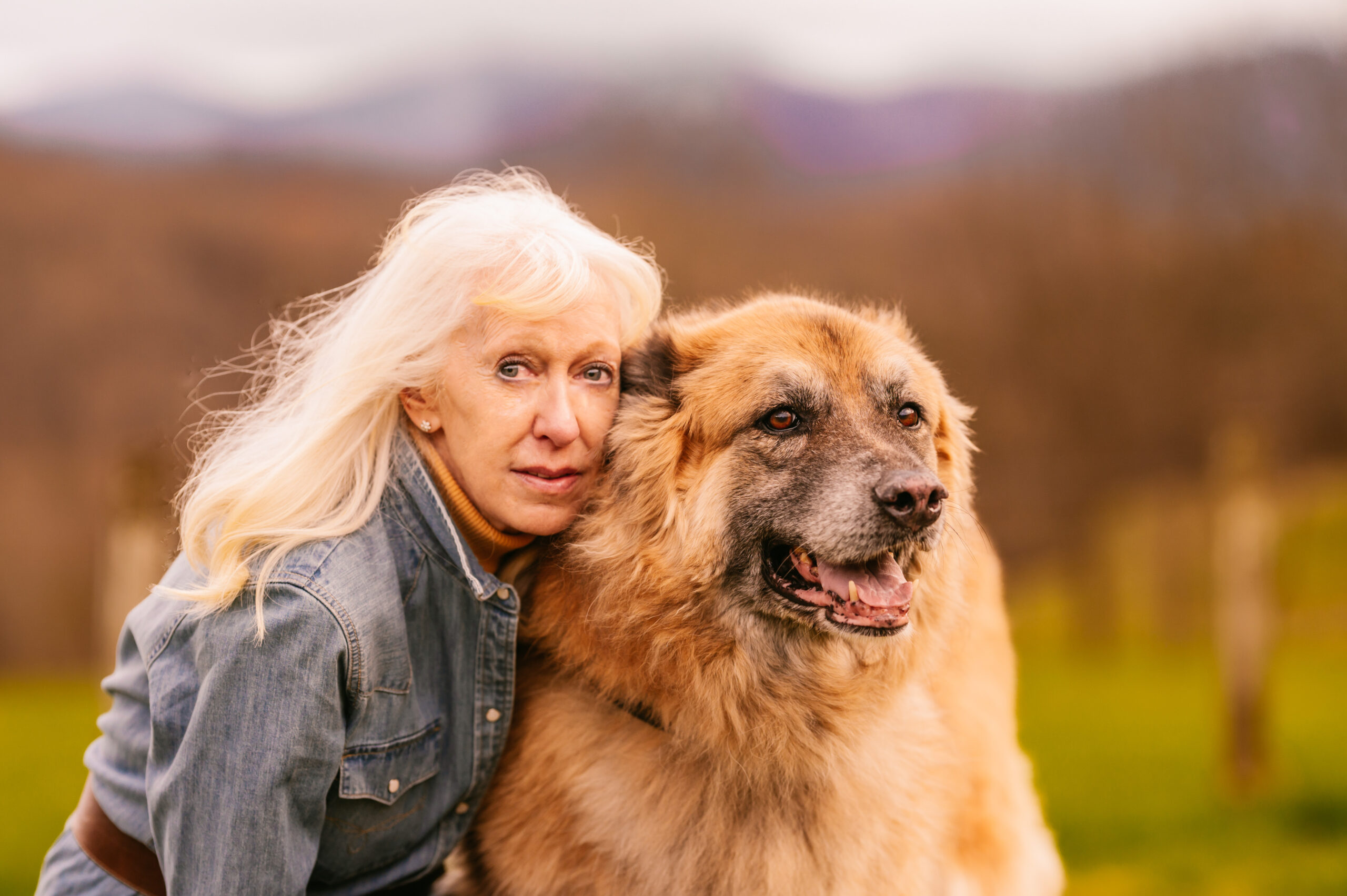
Cheri Hagmeier, President of Sevier County Humane Society, poses with her dog
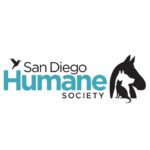 San Diego Humane Society – San Diego, California
San Diego Humane Society – San Diego, California
“Thanks to a generous donor, we are so excited to bring Kind News to 25 classrooms in our focus communities! Kind News enhances our existing humane education programming and reinforces our messages of compassion, respect and responsibility. The magazine is a great way for students to bring these important concepts home and share them with their families as well!” says Staci Hurley, Dr. Seuss Foundation Humane Educator.
Want to get involved? Visit KindNews.org/adopt to learn how you can adopt one – or more – classrooms today, or email KindNews@RedRover.org.

1 year ago
End Summer with a Splash
Join us for a day of poolside fun, games, and 50% off all of our adorable, adoptable animals, sponsored by our friends at Brutus Bone Broth.
The post appeared first on Atlanta Humane Society.

1 year ago
Safe Water Allows Girls Like Mwamini to Dream of the Future
With the start of a new school year, children worldwide are preparing to return to their studies and continue working toward their futures. One such child is Mwamini, a 13-year-old girl in Zeze, Tanzania. However, for most of Mwamini’s life, she had a job to do before she could begin learning for the day.
Each morning, Mwamini woke at 6 a.m. to trek one kilometer to a stream of stagnant, murky water. After waiting in line at her water source, Mwamini filled her bucket and carried it back to her family’s home. She repeated the journey several times, also gathering water for her school.

This lengthy process caused Mwamini to miss valuable class time. Not only did she miss school to walk and wait for water, but she also missed because of water-related illnesses.
“It would take a long time to fetch [the water], and we would miss some studies,” Mwamini recalls. “I felt bad to miss some of the school sessions. It meant I was not performing well in the exams.”

From 2015-2017, school attendance in Zeze was at 67%, with young girls absent the most. School is important to Mwamini, who is fueled by big dreams for her future.
“It is my desire to do well in school. I want to be a teacher, educating other children,” she shares.
In 2018, Water Mission recognized a need in the community of Zeze for safe water access. In partnership with the Grundfos Foundation, faithful donors, and the community, Water Mission completed a safe water project involving the installation of 12 public faucets. More than 5,100 people now have access to safe water, including 600 students attending two schools in the area.

In the first year after the project’s completion, the school attendance rate in Zeze increased from 67% to 86%. By 2021, the attendance rate reached 96%, and children spend less than 10 minutes a day collecting water.
Thanks to your generosity, Mwamini now has time to work towards her future dreams of becoming a teacher. Access to safe water has made a noticeable difference in her academic performance.
“Water has contributed to performing well in my studies, because I have time to study,” Mwamini rejoices. “In fact, I can even measure the change, because I was in the top 10 [of my class] before the safe water project. Now, I am usually second or third in my class.”

Mwamini is just one of many children whose lives and futures have been drastically impacted by safe water. Still, so many children around the globe spend hours collecting water that could make them sick instead of attending school.
Your support allows us to give children like Mwamini a fresh start this school year. Thank you for partnering with us to provide children with safe water and the hope to dream about their futures.
The post appeared first on Water Mission.

1 year ago
Adoption Update: Cole
In the summer of 2018, a Connecticut Animal Control office received calls about a young stray dog who had been frequenting a grocery store parking lot. He had no ID tags or microchip, and no owner came forward to claim him. Since no one claimed this handsome boy, he was housed and cared for at the local municipal shelter and named Cole. Estimated to be around 3 years old at the time, Cole started to exhibit some behavioral challenges in the shelter, like obsessing over food bowls. With his lack of training, socialization with people, and obsession with certain items, we were contacted to help provide Cole that extra level of care and handling to help him meet his needs and thrive. We welcomed handsome man Cole to our Sanctuary in November of 2018!

During Cole’s transition to our canine cottages, he was a bit perplexed about what to do indoors, especially in the living room. He didn’t know how to settle in and would look towards people to keep him busy and occupied. Little was known of Cole’s history, but we did get a bit of insight during his time in the municipal shelter. The Animal Control officers noted he liked to carry around objects in his mouth, using them like a calming pacifier. He would play with his bowl, toss it around, and carry large Kongs in his mouth. He seemed to not have much experience of a home and exposure to common household things like a couch or the TV. We speculated about his previous life and wondered if he spent most of his time outside, away from people, and didn’t have much, which would make sense as to why he was obsessed with the few items he had in his possession.

Getting to know Cole, we saw his obsession with different objects. The objects he would obsess over would vary from day to day, but he definitely had quite the stash of Kongs to help ease any stress as well. We worked to identify his trigger objects and navigate ways to decrease stress. We began positive reinforcement dog training to help him gain confidence and become more comfortable around different objects, people, and places!
It was clear Cole loved people, but he would become overly excited when people showed him affection. Cole was prone to some obsession with new humans by jumping and physically being all over them! Especially since he is a large dog, another primary goal was to help him feel comfortable and confident around new people by teaching him self-control during social interactions, meeting new people appropriately, and helping with his manners so he would not jump all over us to say hello!

You could say Cole was a young wild child when he first arrived at the Sanctuary, but all of his behaviors “made sense” given what we could infer about his past. We quickly learned how smart, athletic, and playful Cole really was! Cole had an array of tough, black Kongs and Kong bones he loved to chew and adored long games of fetch with his special toys. Routine exercise, such as fetch, helped him release energy and provided stability in his daily life. He loved his playtimes—unless it was raining or snowing!
As we worked training routines into his life, it was clear Cole was also intelligent and eager to learn! Cole started to show he could quickly jump into training mode when working with staff, and didn’t have to resort to jumping on people instead! Our Dog Team also worked on relaxation training to help him control his obsession tendencies and could teach himself to be calm, especially inside the cottages.

Cole showed steady improvement over time, but still had some triggers with obsessing with items and remembering his manners. One staff member recalls funny moments with Cole, “Cole had to drink from a cup that the person held for him. He becomes way too excited with water bowls.” Even though Cole still had some progress to achieve, we felt Cole would not need live at the Sanctuary forever, but he would have very specific needs from his people in a forever home environment.
After four years of learning routine, positive dog training, and graduating from numerous Canine College classes, Cole had transformed into a much calmer and mature dog. Despite his indoor behavior, Cole coined the nickname “Zen Cole” because he was one of the very few dogs that didn’t react when other dogs would bark at him on walks. With his calm, peaceful demeanor around other dogs, in turn calmed other dogs and would make them more comfortable being around him. Cole’s transformation even impressed our Sanctuary guest, Brooke, who historically dislikes attention from high energy, wild doggies! Cole was able to show Brooke that other dogs aren’t so scary, and can actually be a lot of fun! The two became fast friends after a few paired walks and playtimes in the yard with staff! Having Cole at our Sanctuary contributed to a lot of turning points for other canine guests and helped them become more comfortable with socializing with dogs.

It was kismet that one of his primary handlers and dog trainers fell in love with him! She understood his training needs, and was seeking a new pup companion to enjoy her and her husband’s active outdoor lifestyle. They enjoyed quiet, secluded outdoor spaces for biking and camping, which sounded great for Cole. It was certainly a bonus that his potential adopter had ties to the Sanctuary and he could continue his playtimes with girlfriend, Brooke, too! After going through our multi-step adoption process and a few overnights with Cole to make sure the family meshed, we felt more than confident it was a good match and our big boy could finally find a real home! After being abandoned in the summer of 2018, everyone at OC was over the moon to send Cole home with his new mom and dad in the summer of 2023!

His first night was filled with walks, his favorite Kong toys, squeakers, and testing out chairs like Goldie Locks to see which one fit his big body just right. Training was still on the forefront as he did try to steal a sneaker, which he nicely traded for a cookie, and he had some trouble going in to his crate. His mom told us, “Nothing negative happened, but we also want to take it slow and not push him.” The following day, Cole was ready to head with mom and dad to the bike shop to meet new human friends before ending the day with a hike.

Coles days continued to be filled with walks, hikes, and mini adventures. He had exposure to new things in home life too. There were still some shoe stealing moments in the first few weeks, but he always traded nicely for a cookie or a squeaky toy! Much more fun! Another funny, unpredictable moment was Cole seemed to dislike when his pawrents were on FaceTime with family. “He retreated to his crate with his back turned to us, but got over it as soon as the call was done!” During snuggle times, he also took up most of the bed!
“He is really being a trooper about all this change, you can do it Cole!!!” And “do it” he could!

After a few months in the home, Cole and his mom went on his first camping trip! He did great with the new overnight outdoor adventure, and apparently enjoyed sitting high on top of the picnic tables!

By the third month, his adopter said it had truly sunk in that Cole was part of the family and they love him more than anything! It’s safe to say, we think Cole feels the same. He went on more camping trips, and hotel stays when the weather was bad, and continued his play-dates with Brooke at the Sanctuary. “The two dogs are a total hit, Brooke is a goof ball and full of energy with Cole.”

As the Christmas season rolled around, so did Cole’s 6-month anniversary of adoption! He didn’t mind the tree at all, but as a preventative measure, his adopters put the Christmas presents in clear bins so they were not a temptation for Cole to chew or get in to! Don’t worry though, once Christmas morning arrived he received all the good things to chew on like his favorite carrot squeaky toy, Kongs, and a stuffed Yeti!

As the seasons went by, Cole continued to thrive with his regular positive training from his parents and continued adventures! Cole has been a wonderful companion whether he was out for a hike deep in the woods, or running errands in town! His mom relayed, “He loves shopping and is a regular at Home Depot and Carhartt. Cole expects everyone to stop and pet him and looks a bit crushed if they don’t. While at Home Depot, a man knelt to pet Cole and Cole gave him a big ol’ kiss on the face! The man started tearing up and said it had been a long time since he had been kissed.” We love to hear that Cole was spreading joy to those around him, even strangers!

Cole continues to be a fabulous camping buddy! “He’s the nosy neighbor and sits on the picnic table at the campsite watching all the other campers and is the best boy when other dogs pass by. He LOVES the tent and can’t wait to get in it at night. He hogs the whole sleeping bag!” With Cole’s big body and even bigger love for his people, he takes up lots of room for snuggles! In fact, his mom and dad even purchased a new couch big enough for all three of them to lounge on! “Cole is in heaven that he can lay between us!”

Any follow-ups with Cole are always filled with new adventures, new achievements, and milestones. His forever family always expresses how much they love him and how thankful they are that he is a part of their family. We think it’s safe to say, Cole shares all the same sentiments!

Our pet family members deserve to be met where they are, to continue to help show them the world in a positive way, and to help them navigate a world that might be unknown to them. Cole’s story is a beautiful reminder of the joy and fulfillment that comes from adopting a pet. Here’s to many more years of love, adventures, and cherished moments for Cole and his wonderful parents! Happy first adoptiversary, Cole!

The post appeared first on Our Companions Animal Rescue.

1 year ago
‘Education in Ukraine — it is a tool for national survival and revival’: Halyna Protsyk at the 15th Annual Japan University English Model United Na...
Halyna Protsyk, PhD, Deputy Vice Rector for Outreach and Social Engagement (Internationalization), lecturer of Political Science Department of Ukrainian Catholic University with the Ukrainian delegation took part in the 15th Annual Japan University English Model United Nations (Notre Dame Seishin University). UN Body: United Nations Educational, Scientific and Cultural Organization (UNESCO). Conference Theme: Education for Sustainable Development.
Halyna Protsyk
Distinguished members of the Notre Dame Seishin community,
Honorable Secretary Generals, Miki Taguchi and Sayaka Katayama, Esteemed Professor Thomas Fast,
Respected delegates, and dear Model United Nations community,
It is a profound honor to address the 15th Annual Japan University English Model United Nations on a topic that is being truly tested in my role as a Ukrainian educator. Education for Sustainable Development resonates deeply with the timeless wisdom shared by former UN Secretary-General Ban Ki-moon: “There can be no sustainable development without peace and no peace without sustainable development.” This profound insight guides our dialogue today, reminding us of the inseparable bond between sustainable progress, education and peace.
Yet, let me challenge you today: peace is not merely a gift to be passed down through generations. It is not a legacy that can be simply inherited. Peace is a moral victory—a triumph that demands an unwavering resolve, relentless determination, deep commitment, and stringent accountability. These are not innate qualities; they are skills that must be cultivated and nurtured. This is where education becomes essential—not just as a preparation for life, but as life itself.
Standing before you, I transcend my role as an educator. I bear witness to the profound, almost sacred power of education as it illuminates the darkest corners of my war-torn homeland, Ukraine. Amidst the chilling echoes of war, amidst landscapes scarred by destruction and lives shattered by death and loss, education stands as a beacon of resilience and hope. Nelson Mandela famously said, “Education is the most powerful weapon which you can use to change the world.” In Ukraine, education is not just changing the world; it is saving it.
Through the stories of Ukrainian defenders, teachers, and students, we see how education cultivates resilience and hope amid the worst situations. Despite enduring daily shellings, air raid alarms, and constant power outages, Ukrainians from kindergarten to university persist in their studies within bomb shelters, fully understanding the critical importance of education. They transform into warriors of resilience, wielding education as their weapon against imperialistic ideologies and armed genocide. Education in Ukraine has become more than a path to personal growth; it is a tool for national survival and revival. Through service learning initiatives, community support projects, and volunteering, education ignites our unwavering determination to heal and rebuild our nation.
Honoring the sacrifices of thousands of fallen heroes—brilliant minds who fought for our freedom—and supporting their families, we steadfastly preserve our national identity. Nearly 2,000 children in Ukraine have been killed or injured amidst the ongoing war, as
reported by UNICEF. I urge you to visit the “Unissued Diplomas” exhibition generously hosted by Notre Dame Seishin University, which shares the stories of 40 Ukrainian students killed in the war. This exhibition reminds the world of the ongoing conflict and the price Ukrainians pay daily for freedom. After February 24, 2022, classrooms became bomb shelters and battlefields, transforming fear into bravery. These students, who once worried about exams, now have diplomas that will never be issued, because Russia took the lives of their to-be owners in its attempt to take Ukraine’s freedom. This exhibition honors their memory.
Through academic partnerships, educational programs, and dialogues like this, education becomes a beacon of unwavering truth and immense strength, connecting Ukraine with the global community through solidarity and shared responsibility. This is not just education in the traditional sense; this is education as a lifeline, as a vital force that sustains the spirit of a people fighting for their future. In the context of the United Nations, this embodies the principles of global solidarity, the protection of human rights, and the fostering of peace through educational empowerment. By supporting Ukraine’s educational resilience, the international community reinforces its commitment to these universal values and demonstrates the power of education in promoting sustainable development and peace.
This shapes a future where Ukraine emerges not just from the shadows of war but into the light of a promising, united, and peaceful tomorrow, where justice and international law prevail over violence. This is our mission, our hope, and our unwavering promise to the generations to come. As we look to the future, we envision Ukraine that is not only a “country of volunteers and veterans” or “the resilient” but also a “country of homecoming” for our refugees, a “country of healed wounds” for the millions in need, a “country of youth” where family reunions take place on our land, a “country of economic miracle” where innovations and world talents meet together, a country of hope for other countries devastated by conflicts and disasters. The answer lies in our collective efforts today by prioritizing education, by fostering global partnerships, and by committing to the principles of peace and justice.

Halyna Protsyk with the Ukrainian delegation
As you, distinguished delegates, embark on your Model United Nations journey today, allow me to share some ideas that I hope will inspire you to become not only successful diplomats and negotiators but also empathetic leaders during these turbulent times. These concepts are rooted in what I cherish most—being part of the Ukrainian Catholic University community, which, according to its mission, is nurturing future generations of leaders in Ukraine and internationally for the glory of God, human dignity, and common good and as our Rector Taras Dobko states, “is called to be a community of hope during the turmoil of war and recovery”. They are rooted in the principles of Witness, Serve, and Communicate. Around here, we joke that these are the secret handshake and password to join the UCU club:)
You can Witness: Bearing witness to truth and justice is a core tenet of our university. It means actively observing, documenting, and sharing the realities of those affected by war, injustice, and adversity. By bearing witness, we ensure that the stories and experiences of marginalized and oppressed communities are heard and remembered. This principle encourages our students, faculty, and staff to stand up for what is right, to be voices for the voiceless, and to advocate for peace, human rights, and dignity. As Elie Wiesel, a
survivor of the Holocaust and Nobel Laureate, once said, “There may be times when we are powerless to prevent injustice, but there must never be a time when we fail to protest.” By bearing witness, we take a stand against indifference and strive to make a positive impact on the world.
You can Serve: Engage in service learning and community support initiatives. Volunteering is a powerful way to contribute to the healing and rebuilding of affected communities. As the famous Japanese proverb says, 塵も積もれば山となる– “Even dust, when piled up, becomes a mountain.” Small efforts, over time, lead to great results. Each act of service, no matter how small, contributes to the larger goal of peace and stability. As Mother Teresa famously said, “Not all of us can do great things. But we can do small things with great love.” By serving others with dedication and compassion, we collectively make a significant impact on our communities and the world.
You can Communicate: Foster open, respectful and honest dialogues with your fellow delegates. Effective communication is essential for understanding, cooperation, and the promotion of shared goals. Through dialogue, we can build bridges, resolve conflicts, and work towards common objectives. As another Japanese proverb goes, 「三人寄れば文殊の知 恵, which means “When three people meet, wisdom is exchanged.” This underscores the importance of collective understanding and cooperation, reminding us that only through open communication, we can achieve greater wisdom and progress together.
Enhanced by your talents and knowledge, these efforts will transform the three days of the conference into a celebration of global solidarity and long-lasting friendship. Much like what I experienced in the past when I met once professors from Japan, Canada and Germany, who now have brought their students here. Professor Thomas Fast, Chaldeans Mensah, and Thomas Weiler, I feel truly blessed to have your friendship in my life. Your empathy and unwavering support demonstrate the power of global solidarity, and because of this, I am here today on this stage.
Ladies and Gentlemen, distinguished delegates,
As I conclude, I wish to communicate my gratitude. To the Notre Dame Seishin community for their tremendous effort in supporting the arrival of international delegations, and to the Okayama families for hosting international students in a safe, warm, and caring environment. My heartfelt thanks extend to the Japanese nation and all the people and countries you represent. Your unwavering solidarity, prayers, information, and aid have been invaluable. The people of Ukraine—soldiers, medical staff, volunteers, scholars, students at risk, and nearly 8 million refugees welcomed in your countries—are profoundly grateful for your support in standing with Ukraine and protecting peace.
Archbishop Borys Gudziak, President of the Ukrainian Catholic University, aptly said: “It all comes together. No act of good is lost. No gesture of solidarity is without fruit. We thank you for walking with the people of Ukraine, bringing upon them your solidarity and mercy, and keeping your countries informed about the truth, virtues, and our shared responsibility to remain united in solidarity.”
Dear young leaders, thank you for your commitment. May your journey in Japan University English Model United Nations be both enlightening and empowering!
どうもありがとうございます!
Halyna Protsyk, PhD
Deputy Vice Rector for Outreach and Social Engagement (Internationalization) Lecturer of Political Science Department of Ukrainian Catholic University National academic trainer for NMUN Ukraine
Member of the Academic Council of United Nations System